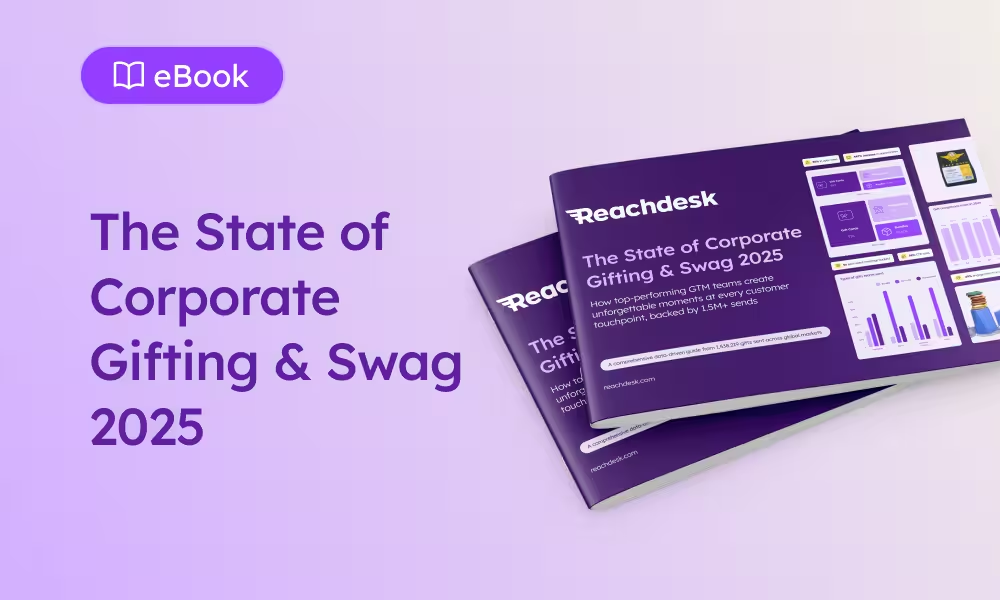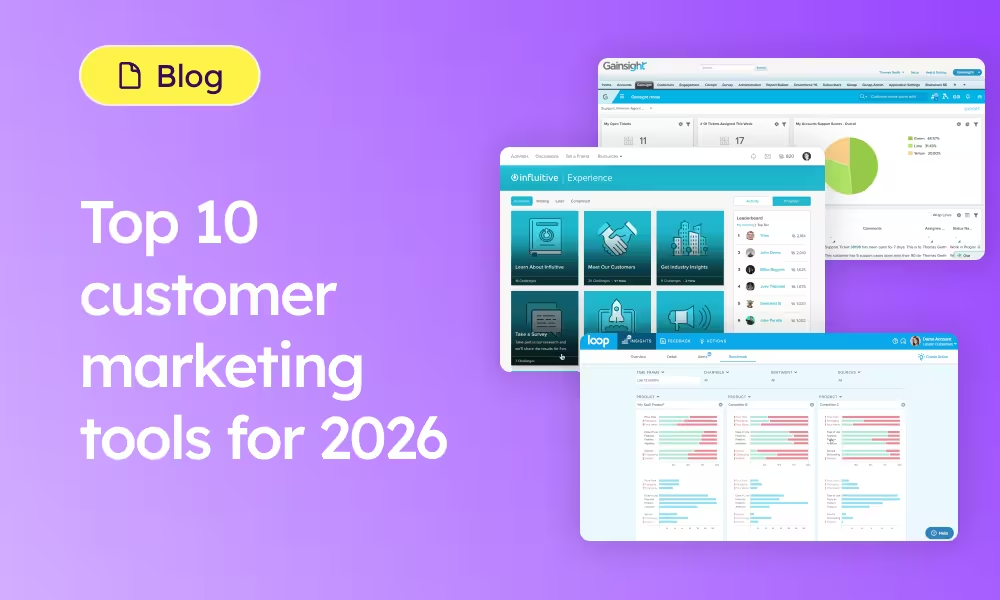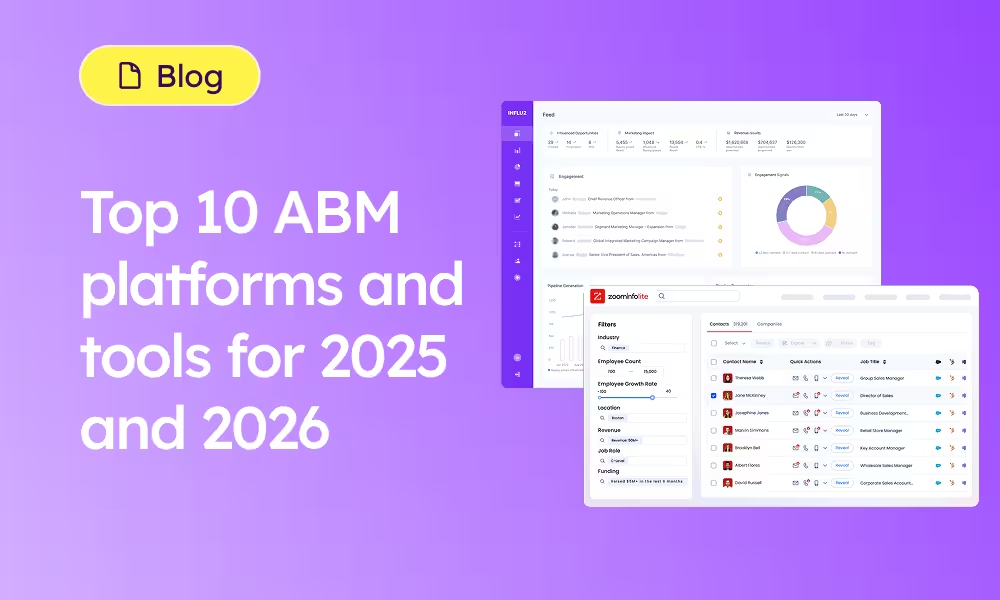One powerful platform for ROI-driven corporate gifting, swag, and engagement at scale.
About me, a proud queer
My name is Tallulah Grace, and I’m a Digital Marketing Executive at Reachdesk. I’m also a proud bisexual woman. For Pride this year I offered to pen a piece about my own experiences of Pride, from its personal impact on me to the way I now see it used and deployed by companies and how these efforts can be both positive and disappointing.
As part of the age cohort that forms a tiny cusp between millennials and gen-z, I grew up attending school in an environment where “gay” was a regular insult, but Pride and any form of queerness wasn’t openly spoken about. It wasn’t addressed in the media in the way it is now, the internet didn’t serve us the same function it does now, and social media was still growing into the behemoth it is today.
Without the globalization that snowballed with social media, connecting with like-minded people around the world and building community was harder. Without that community and discussion, I would never have realized that not all women fancy other women a bit. The more I read and saw, the more I realized that the way I felt about women wasn’t exactly the same for all other women, and began exploring what that meant for my sexuality.
Imagine, as a straight person, never being given the knowledge of what attraction to the opposite gender is. Having the small bits that build up together to create that attraction be whispered behind closed doors only. To never have it presented to you as a realistic option. To never be able to explore and discover through trial and error what works for you. Because that is the experience of many people when we don’t speak openly and proudly about queerness. Never having the opportunity to discover parts of yourself, and ways you can love and exist in the world.
Why it’s important to me to write this piece
I offered to write this piece because there’s a power in speaking from a personal perspective rather than that of a corporation’s. There is more freedom as an individual to speak to the deeply human struggle. And, while companies should display solidarity, it’s important to remember that it’s people that put power in others’ hands. It’s the emotionality of our stories that will touch a reader, not a company making a statement from a faceless place.
People should be the ones that guide a company’s approach to social issues, and companies must prioritize hearing and amplifying those voices if they wish to be allies.
The origins of Pride
When talking about Pride and the importance of the people’s role in it, I would be remiss to not remind you all where Pride came from - and it’s not the rainbows and celebrations that cover cities like London, New York, and Sydney today.
Pride was born of a fight for the right to exist peacefully, and it began within living memory. For a long time, being queer was illegal in both the US and UK (and continues to be illegal in many countries to this day). People of any and all LGBT backgrounds were not entitled to the same basic civil rights as other citizens. In many countries around the world being queer is still illegal.
It wasn’t until June 1969 when a police raid at the Stonewall Inn in Manhattan led to riots by lesbian, gay, bisexual, and trangender people that created the momentum for the Pride we know today. Those riots were the starting point of Pride marches, which were created to highlight the pride felt in being queer, and to bring attention to the lack of equality queer people face. It’s an ongoing reminder of what is at stake and how many people’s lives are affected. It’s a chance to stop it from being swept under the carpet, because we shouldn’t have to live in silence.
To erase Pride’s beginnings as a fight and a riot against the establishment and laws, is to erase the truth of how we earned these hard won rights. They were not given freely to us - they were fought for, hard and continuously, because public pressure works. People are still fighting globally for rights to be given to all. The privileges in certain countries are not yet worldwide.
What companies get wrong about Pride
Part of the creation of Pride was to bring attention to an important cause. A logo change to include the rainbow colors is a quick and easy way of identifying a standpoint. But, how meaningful are a company's Pride efforts if they start and end with a logo change?
The best meaning people in a company can fail to push anything through if a company refuses to side itself with what can be seen as a ‘political’ issue. Fundamentally a logo change needs to be backed up by measurable and transparent efforts. Companies that choose to do a logo change should also make a public statement on their meaningful support for their queer employees, with quotas to ensure hiring practices are queer friendly. If a company isn’t willing to do that, or amplify their queer employees voices, they have no business calling themseves allies to the cause.
Additionally, statements need to reflect the origins of Pride and give appropriate credit. Pride is not a sales opportunity, or a chance to flog your product. It’s a time to place the focus in the correct place - the black drag queens who’ve been fighting all along, the bisexual woman who started Pride marches, the gay man who coined the term ‘gay pride’. Educate people and you might stand out from the crowd for doing the right thing.
The difficult part of doing Pride ‘right’ (and this is by no means a how-to), is balancing an employee-led approach without demanding your queer employees hand over their vulnerability and undertake emotional labor when they are the marginalized group. Allies need to be the ones doing the heavy lifting. Asking questions is a good place to start, but understanding that it’s ok for your team to say “no” to these questions is the first step. Remember, Google is your friend and it is not the job of queer people to educate you unless we choose to.
How companies can actively support queer people
Have leadership begin Pride plans well in advance of Pride. They should ask but not require that any queer people who would like to support planning and Pride efforts are encouraged to do so. Listen to them and structure plans around amplifying queer voices and history.
Organize donations to queer charities, and try and find ways your company can support those charities year round, too. Remember that promoting equality is what’s important, so everything from the benefits you offer all employees, to the language that’s used across the company should be considered and inclusive of the LGBT community.
A right to be here
Pride is a chance to commemorate and remember, for queer people to think on our elders who lost their lives during the AIDS crisis, the book burnings of Nazi Germany that erased much of our history, and similar issues globally.
It’s also a chance for queer people to celebrate how far we’ve come. To recognize the steps that have been made and, at least where I’m writing this from, be glad that I am able to be an openly bisexual woman without fearing for my life and livelihood.
Resources
If you are in crisis, there is support available.






.jpeg)



